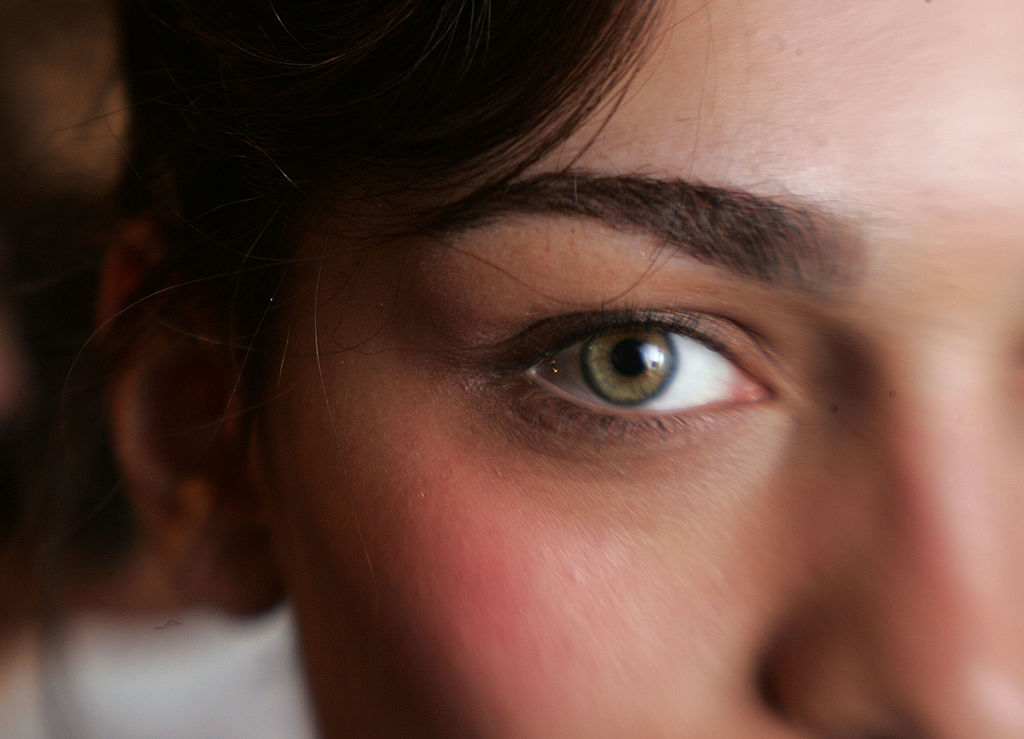New treatment restored limited vision to people with degenerative eye disease


A free daily email with the biggest news stories of the day – and the best features from TheWeek.com
You are now subscribed
Your newsletter sign-up was successful
Researchers report that a new treatment for retinitis pigmentosa (RP), a previously irreversible degenerative eye disease that affects 2 million people around the world, was able to restore partial vision to patients.
The study was published Monday in the journal Nature Medicine. In people with RP, gene mutations cause the slow deterioration of the eye's rod-shaped photoreceptors, so visual information is no longer delivered to the brain. Led by Dr. José-Alain Sahel, a professor of ophthalmology at Sorbonne University and the University of Pittsburgh, researchers took a closer look at ChrimsonR, a protein that triggers electrical activity and makes cells able to absorb light.
The team wanted to find a way to use ChrimsonR to boost the light sensitivity of the cells in the retina, and they were able to "genetically manipulate a harmless adenovirus so that it carried Chrimson," Time reports. "The virus was then injected into the fluid-filled portion of the eye behind the lens."
The Week
Escape your echo chamber. Get the facts behind the news, plus analysis from multiple perspectives.

Sign up for The Week's Free Newsletters
From our morning news briefing to a weekly Good News Newsletter, get the best of The Week delivered directly to your inbox.
From our morning news briefing to a weekly Good News Newsletter, get the best of The Week delivered directly to your inbox.
One of the trial participants, a 58-year-old man who was diagnosed with RP four decades ago, started the study with the ability to perceive some light. A dose of the altered virus was injected into one of his eyes, and he wore goggles to regulate incoming light so it wasn't too intense. For several months, researchers tested him to see if he could determine which objects were in front of him on a table. He wasn't successful until four months in, and soon he could even detect people and the crosswalk at an intersection.
Sahel believes this could be a permanent solution for vision loss caused by RP, but more research needs to be done on everything from dosing levels to the best time to start treating patients. Read more at Time.
A free daily email with the biggest news stories of the day – and the best features from TheWeek.com
Catherine Garcia has worked as a senior writer at The Week since 2014. Her writing and reporting have appeared in Entertainment Weekly, The New York Times, Wirecutter, NBC News and "The Book of Jezebel," among others. She's a graduate of the University of Redlands and the Columbia University Graduate School of Journalism.
-
 6 of the world’s most accessible destinations
6 of the world’s most accessible destinationsThe Week Recommends Experience all of Berlin, Singapore and Sydney
-
 How the FCC’s ‘equal time’ rule works
How the FCC’s ‘equal time’ rule worksIn the Spotlight The law is at the heart of the Colbert-CBS conflict
-
 What is the endgame in the DHS shutdown?
What is the endgame in the DHS shutdown?Today’s Big Question Democrats want to rein in ICE’s immigration crackdown
-
 Blue Origin launches Mars probes in NASA debut
Blue Origin launches Mars probes in NASA debutSpeed Read The New Glenn rocket is carrying small twin spacecraft toward Mars as part of NASA’s Escapade mission
-
 Dinosaurs were thriving before asteroid, study finds
Dinosaurs were thriving before asteroid, study findsSpeed Read The dinosaurs would not have gone extinct if not for the asteroid
-
 SpaceX breaks Starship losing streak in 10th test
SpaceX breaks Starship losing streak in 10th testspeed read The Starship rocket's test flight was largely successful, deploying eight dummy satellites during its hour in space
-
 Rabbits with 'horns' sighted across Colorado
Rabbits with 'horns' sighted across Coloradospeed read These creatures are infected with the 'mostly harmless' Shope papilloma virus
-
 Lithium shows promise in Alzheimer's study
Lithium shows promise in Alzheimer's studySpeed Read Potential new treatments could use small amounts of the common metal
-
 Scientists discover cause of massive sea star die-off
Scientists discover cause of massive sea star die-offSpeed Read A bacteria related to cholera has been found responsible for the deaths of more than 5 billion sea stars
-
 'Thriving' ecosystem found 30,000 feet undersea
'Thriving' ecosystem found 30,000 feet underseaSpeed Read Researchers discovered communities of creatures living in frigid, pitch-black waters under high pressure
-
 New York plans first nuclear plant in 36 years
New York plans first nuclear plant in 36 yearsSpeed Read The plant, to be constructed somewhere in upstate New York, will produce enough energy to power a million homes
